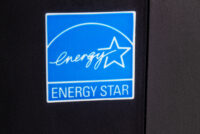FAA Partners with U.S. Airports to Meet 2050 Net-Zero Climate Challenge
The U.S. Department of Transportation’s Federal Aviation Administration (FAA) and U.S. airports have launched an Airport Climate Challenge to help achieve the Biden-Harris administration’s goal of net-zero emissions by 2050. Airports can take advantage of several FAA funding programs to meet this goal, including grants for low- or zero-emissions vehicles, renewable energy production, energy assessments […]









